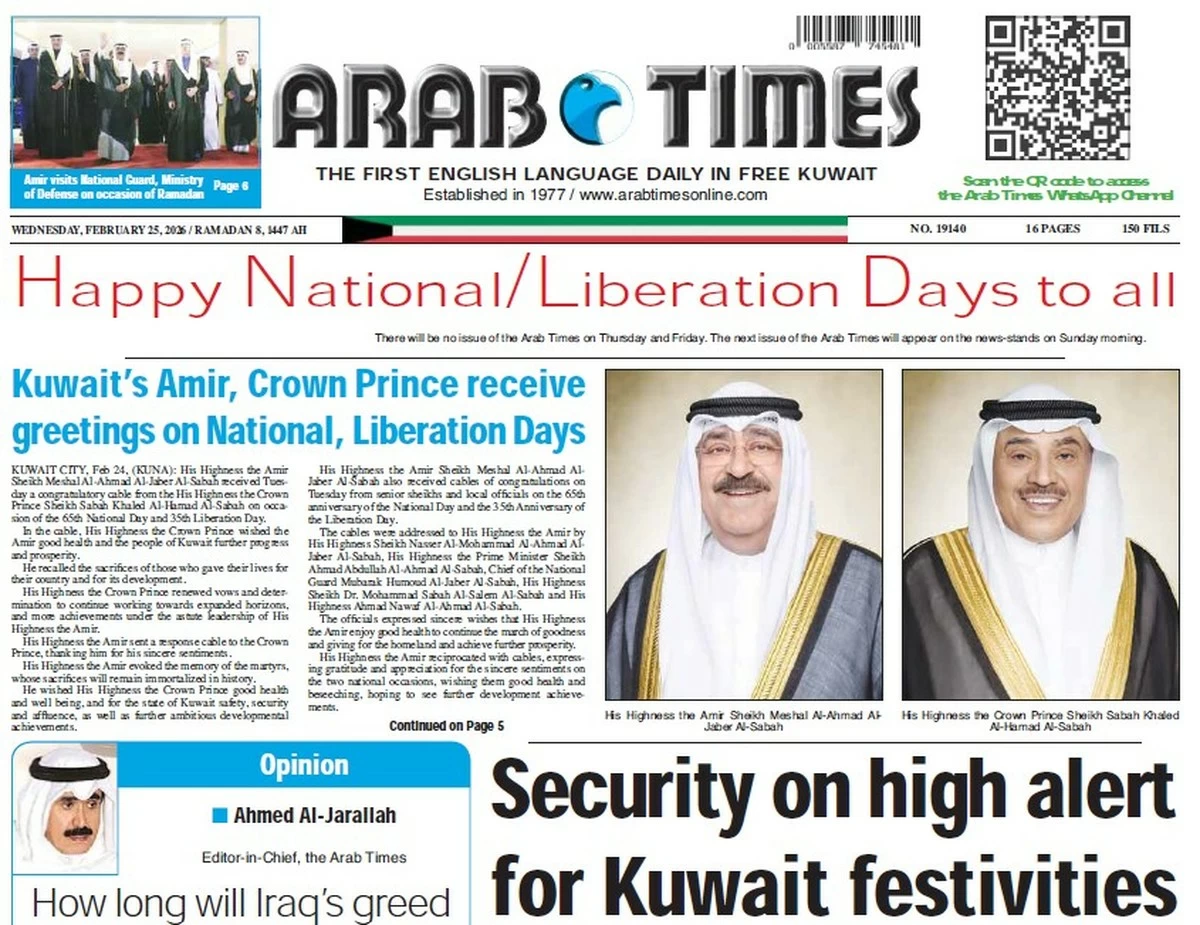28/09/2025
28/09/2025

KUWAIT CITY, Sept 28: The Kingdom of Saudi Arabia’s “unprecedented” decision to impose a five-year freeze on annual increases in residential and commercial rents in Riyadh, aimed at stabilizing the real estate market and curbing inflation fueled by rapid economic growth and rising housing demand, has sparked widespread debate in Kuwait over the need for similar regulatory measures.
Commenting on the decision, Chairman of the Real Estate Association Ibrahim Al-Awadhi described the move as a significant and proactive step to control real estate inflation and reduce financial pressure on citizens. He said Riyadh has witnessed a sharp rise in property prices in recent years, driven by strong economic performance, which has directly impacted housing costs and increased the burden on residents. Regarding the situation in Kuwait, Al-Awadhi explained that the local real estate market operates differently from that of Riyadh, with rental relationships primarily governed by supply and demand.
Kuwaiti law already provides some protection for tenants by prohibiting rent increases within the first five years of a lease agreement, offering a level of stability that helps protect tenant rights. However, further regulatory development is necessary. Additional mechanisms such as the standardization and electronic documentation of lease contracts, similar to systems already in place in Saudi Arabia, must be implemented, which would enhance transparency, reduce disputes, and contribute to better regulation of the real estate market. Al-Awadhi called for the establishment of an independent real estate authority responsible for monitoring and regulating the market
He suggested that such an authority should be empowered to set clear guidelines for rental values, both minimum and maximum, while preserving the existing contractual framework between landlords and tenants as defined by law. Al-Awadhi emphasized that the creation of this body would improve market efficiency and help curb arbitrary practices that could lead to imbalances or disputes between the two parties.
Meanwhile, real estate expert Basma Al-Sultan echoed Al-Awadhi’s views, emphasizing that the Kuwaiti real estate market needs to enhance its regulatory framework. She called for the standardization and electronic documentation of lease contracts, as well as better regulation of various real estate sectors through the establishment of a unified real estate authority, similar to models adopted in several GCC countries.
Al-Sultan stressed that each real estate market has its own unique dynamics, and policies cannot be directly copied from one country to another. She noted that the Saudi rent freeze applies specifically to Riyadh and not the entire country, highlighting the tailored nature of the decision and its relevance to Riyadh’s status as a rapidly growing economic hub facing rising demand and limited supply.
Al-Sultan explained that the decision achieves balance in the Riyadh real estate market by taking into account the interests of both parties. It provides tenants with residential and economic stability while preserving the rights of property owners to earn fair returns on their investments. She also noted that the rent freeze is likely to contribute to the stabilization of existing property prices. In addition, the Sakan Real Estate website listed the average monthly rent for a three-bedroom apartment in GCC cities
Saudi Arabia:
- Riyadh: 4,500–6,000 SAR
- Jeddah: 3,500–5,000 SAR
- Eastern Province (Dammam/ Khobar): 3,000–4,200 SAR
Kuwait:
- Kuwait City and suburbs: 500– 650 KWD
- Mid-range areas (Farwaniya, Jahra): 350–450 KWD
- Upscale areas (Sharq, Salmiya, Shuwaikh): 700–950 KWD
United Arab Emirates:
- Dubai: 8,300–11,000 AED
- Abu Dhabi: 6,600–9,200 AED
Qatar:
- Doha: 8,000–12,000 QAR
- Doha: 8,000–12,000 QAR
Bahrain:
- Manama: 350–500 BHD
- Manama: 350–500 BHD
Oman:
- Muscat: 350–450 OMR
- Muscat: 350–450 OMR
By Marwa Al-Bahrawi Al-Seyassah/Arab Times Staff


